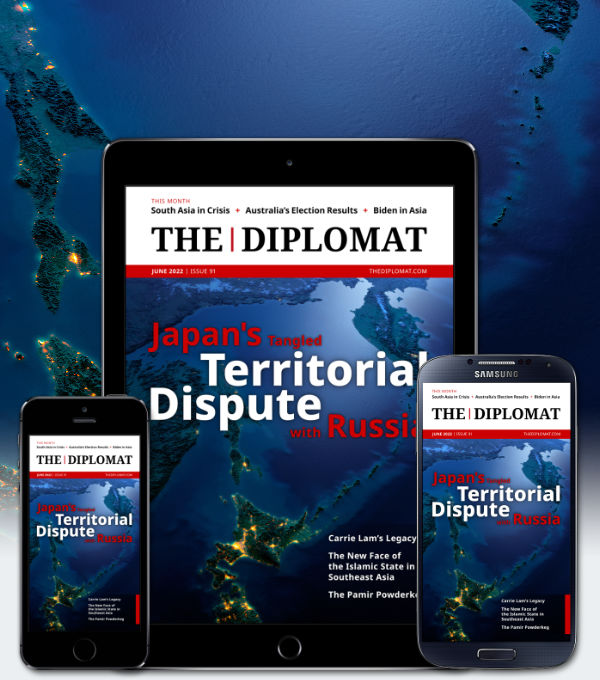| Welcome to the latest issue of Diplomat Brief. This week our top story comes from Myanmar, where some ethnic armed groups have dropped previously strident opposition to the military junta that came to power via coup in February 2021. As Robert Bociaga argues, there’s little chance the junta will actually give the ethnic armed groups the autonomy they seek. We also have an interview with New Statesman Senior China and Global Affairs Editor Katie Stallard about the power of history in crafting narratives in Russia, China and North Korea. |
| Story of the week |  | Politics Ethnic Armed Groups Eye Post-coup MyanmarWhat Happened: In recent weeks, as Myanmar’s various ethnic armed groups attempt to unite the junta has extended invitations for the same groups to negotiate with the government that came to power in a February 2021 coup. Some have taken the offer up, others have not. Our Focus: After the coup, many ethnic armed groups took a “wait-and-see” approach. But with 10 of 21 groups attending a recent round of peace talks with the military government, there’s a clear split between those ready to deal with the junta and those holding out hopes for the National Unity Government’s success. What Comes Next: On the surface, the recent events seem to be a blow to the NUG, but as Robert Bociaga writes, “the junta’s PR success is built on unstable terrain as it is highly unlikely that they will grant any form of self-determination to the ethnic people, as hoped by the invited leaders.” Read this story |
| Behind the News | INTERVIEW Katie StallardNew Statesman Senior China and Global Affairs Editor Katie Stallard on the correlation between myth and memory in the strongman regimes of China, Russia, and North Korea: “The leaders of these three autocratic regimes draw heavily on the history of the last century’s wars – specifically World War II and the Korean War – to frame their countries’ contemporary challenges and shore up support for their actions.” Read the interview |
| This Week in Asia | Northeast Asia North Korea’s COVID numbers just don’t add up.On May 12, North Korea announced its first COVID case. In the following two weeks it reported over 3 million incidences of “fever.” And yet, Pyongyang has reported only 68 deaths. At least one of those numbers must be wrong. Find out more | South Asia India’s many strategic dalliances create one big problem.India has pursued several minilateral forums, most importantly and contradictory the Quad, BRICS, and the SCO. In each, India is the odd man out. Attending meetings of all three in recent weeks it’s clear that there is an inherent danger of nobody taking India seriously because New Delhi risks becoming undependable to everybody. Find out more | Southeast Asia Cambodia holds commune elections.On Sunday, Cambodians will vote in important local elections that are likely to point the way toward national elections due next year. The poll will elect representatives to councils in the country’s 1,652 communes and sangkats, the administrative level above the village. Only one of seventeen parties – Prime Minister Hun Sen’s Cambodian People’s Party (CPP) – stands a realistic chance. But the outcome will nonetheless give some indication as to how much political freedom the CPP government is willing to permit in the run-up to next year’s national election. Find out more | Central Asia Centerra-Kumtor divorce proceeding as planned.In April, Canadian mining giant Centerra Gold announced it had reached an agreement with Kyrgyz authorities to turn the Kumtor operation over to Kyrgyzstan completely. The terms of the divorce include the cessation of all legal proceedings. Last week, a Bishkek court made good on that term by canceling the $3.2 billion find that kicked off the final chapter of Centerra’s Kyrgyz dealings last year. Find out more |
|  |





